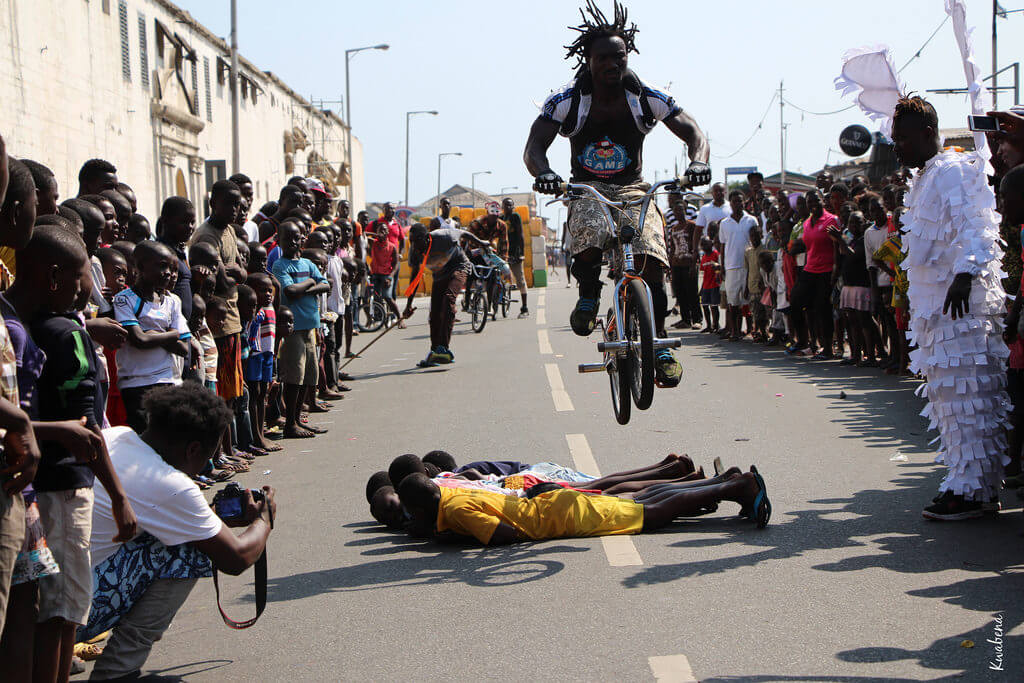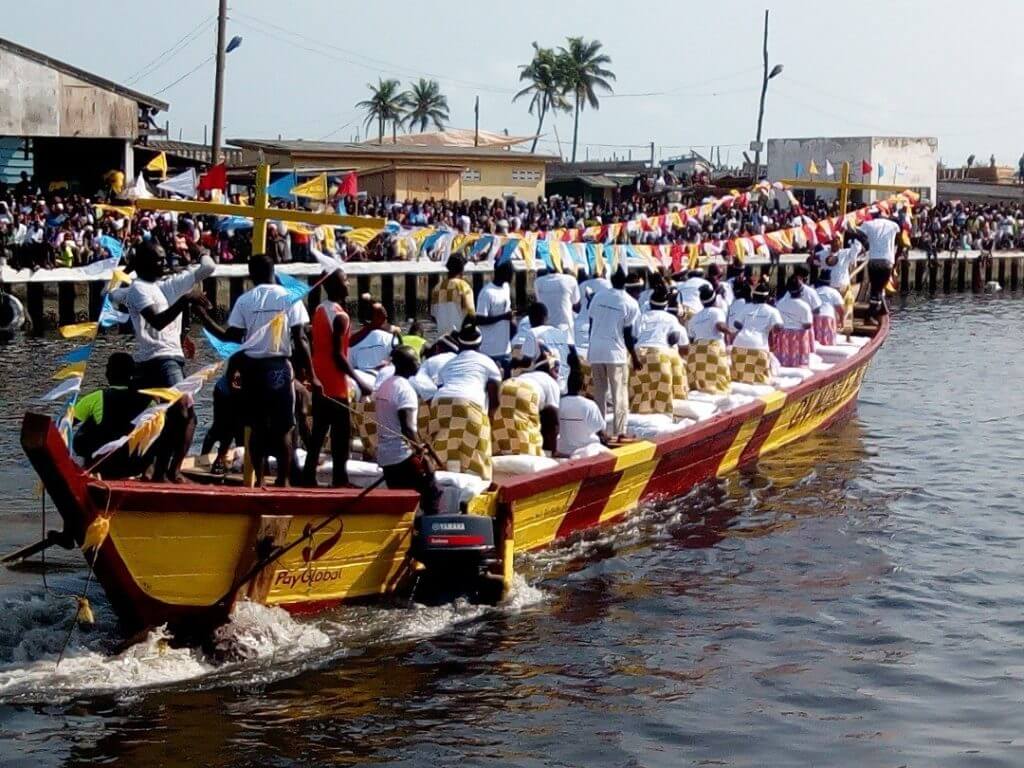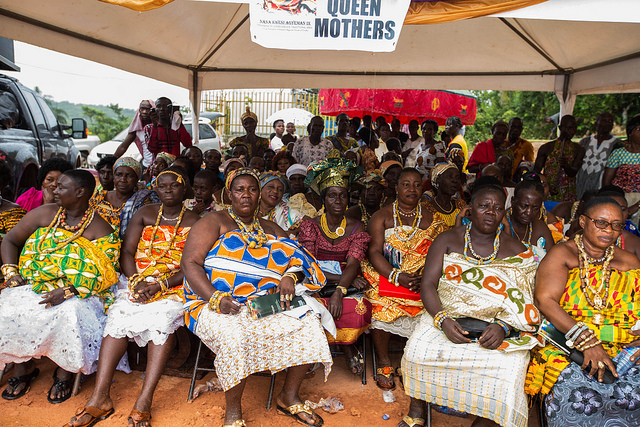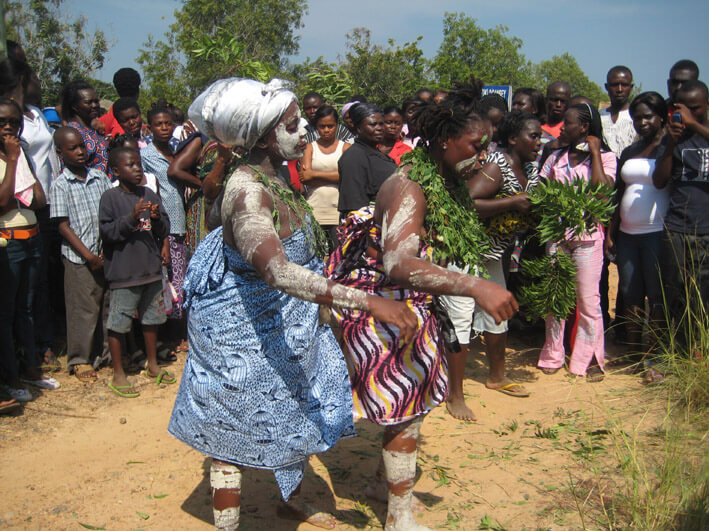Ghanaian festivals are a colourful and vibrant part of the culture. Each year, festivals and durbars are held in various parts of the country to celebrate the heritage of the people.
Such festivals and ensuing durbars are also held in various parts of the country for reunion, development purposes and to strengthen beliefs of society.
To some tribes, festivals are held in order to purify the whole state so that people can enter the New Year with confidence and hope.
For culture lovers, here are 4 festivals held in the month of July. You could consider patronising any of them to have a feel of the true Ghanaian culture.

Bakatue Festival

Bakatue Festival Literally translated to mean “opening up of the Benya Lagoon into the sea”, Bakatue symbolizes the
beginning of a fishing season, which is the main livelihood of the people of Elmina. It is celebrated annually in Elmina on the first Tuesday in July and originated centuries ago, long before the arrival of the Europeans. The splendid ceremonies include a durbar of chiefs, a colourful regatta of canoes on the Benya Lagoon and processions. A solemn “net casting” ceremony symbolizes the beginning of a new fishing season, and the catch is offered to the deities of the traditional area. You are invited to take part in the regatta and merry-making.
Kundum Festival

Kundum Festival (Yam Festival) is celebrated in the Western Regions by the chiefs and people of Sekondi coastal tribes, the Ashantas and Nzemas between July and November. It moves west from Takoradi to town after town at weekly intervals. It is celebrated to remember their ancestors and ask for their help and protection. It is also used to purify the whole state, and celebrates the goddess of the fertility for providing a bumper harvest. It may be regarded as a harvest festival, as well as a period for remembering the dead, cleansing the community and setting new goals for the coming year.
Fire Festival

Fire Festival is celebrated by all the traditional areas of the Northern Region. During the festival, the traditionalists pacify their gods whilst the Muslims prepare a black concoction for writing Quranic verses on slates for fortification and purification. Torches are lighted amidst drumming, dancing and a procession on the principal streets of the region. It takes place on the 9th day of Bugum (July).
Ohum-Kan

Ohum-Kan Festival is celebrated by the Kyebi and Asamankese in the Eastern Region. It signifies the breaking of hunger by the God Agyimprem showing a rope of Yam. It unites people and promotes their cultural life. It is also associated with Ohum-Kyrie which closes the Yam festival and is celebrated in remembrance of the ancestors. It takes place between July and September each year.







